Roald Dahl Centenary – Best Film Adaptations Of His Work
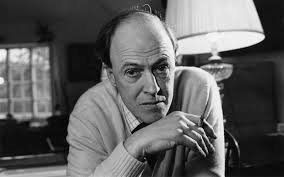
Roald Dahl was born 100 years ago on the 13th September, 1916. A novelist, short story writer and recognised ace fighter pilot during the Second World War, Dahl is best remembered for his children’s books which manage the uncanny feat of merging the unsentimental, and often darkly comic, with resonances of warm emotion and the underlying power of good and compassion. His books have sold over 250 million copies worldwide and a number of these have been translated for the silver screen including The BFG, The Witches, James and the Giant Peach and, of course, Charlie and the Chocolate Factory; that on two occasions in fact. Dahl even tinkered with screenwriting himself in the 1960s when he adapted two books by his contemporary Ian Fleming – You Only Live Twice in 1967 and Chitty Chitty Bang Bang in 1968. He also began the adaptation of his own 1964 book Charlie and the Chocolate Factory (for which he is credited in the resulting film), but failed to adhere to deadlines which resulted in it being rewritten and completed by David Seltzer (who himself would go on to write The Omen later that same decade). Dahl was reportedly not happy with the film which was subsequently released as Willy Wonka and the Chocolate Factory in 1971 as he felt it placed too much emphasis on Willy Wonka, as opposed to Charlie Bucket. Angry also with some of the liberal deviations from his own source material, he refused for any more versions of the book to be made in his lifetime, including an adaptation for its sequel, Charlie and the Great Glass Elevator. The Tim Burton/Johnny Depp version came some 15 years after his passing. The author was also dismissive of the film adaptation of The Witches when he viewed it in 1990. The happy ending which was chosen by the filmmakers jarred with him. But at least he appears to have been satisfied with the 1989 animated version of The BFG which featured the voice of David Jason as the titular character. I’m not quite sure of what he might make of the recent Spielberg adaptation which featured Mark Rylance. The author obviously did not appreciate his work being tinkered with too much. The lighter and brighter tone of the 2016 film might just have plagued him ever so slightly one suspects.
Of the crop of films which have emanated from his works since the time of his death in November 1990, I would hazard a guess that Henry Selick’s 1996 adaptation of James and the Giant Peach and Wes Anderson’s 2009 Fantastic Mr. Fox might well be the two the great writer would appreciate the most. James most especially retains the dark undercurrents the writer employed in much of his work, whilst Mr. Fox is a complete delight and a veritable hoot from start to finish. Of the others, I’m not quite so sure. I didn’t care so much for the 2005 Charlie and the Chocolate Factory myself (Johnny Depp doing a weird Michael Jackson impersonation) and the sentimentality of Matilda and the recent BFG might not sit well with Dahl if he’d lived to see them. In truth we’ll never know. The author might well have surprised us all with what he liked and didn’t like. Something akin to one of his famous Tales of the Unexpected perhaps.
But in any case I digress. Let’s remind ourselves once again of the great career of this fantastic writer who has brought so much joy and evocation to the lives of children and adults alike by way of his highly imaginative stories and playful employment of language. Below I’ve selected what for me are the six best and most delumptious – even scrumdiddlyumptious – Roald Dahl film adaptations of all time. Enjoy them for yourselves. And happy 100 Roald!!
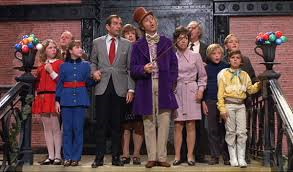
Willy Wonka and the Chocolate Factory (Mel Stuart 1971)
This now classic and much revered musical-fantasy was not quite the hit you might imagine it to have been when first released in 1971. The background to the adaptation of Dahl’s 1964 book Charlie and the Chocolate Factory is an interesting one and, very appropriately, has a child at its heart. Director Stuart’s then ten-year-old daughter read Dahl’s book and persuaded her father to make a film version of it involving producer David L. Wolper. Stuart approached Wolper with the idea; the latter happened to be in discussions with the Quaker Oats Company in relation to the merchandising of a new candy bar they were introducing to the market. Wolper convinced the powers-that-be at Quaker Oats to buy the rights to the book and finance the film as a means towards promoting their new candy bar. The title of the film was subsequently changed to Willy Wonka and the Chocolate Factory in order to tie in with the overarching marketing strategy. Dahl himself was employed to write the script; importantly, however, scriptwriter David Seltzer (The Omen) made some telling contributions and revisions to this. Several actors were considered for the role of Willy Wonka himself. Members of the Monty Python ensemble expressed an interest; Fred Astaire and Joel Grey were also considered. The part eventually went to Gene Wilder and he’s a sheer delight in the role. The late and great Wilder has a warm aspect to him as Willy (as revealed at the film’s climax), but there’s also an innate ambiguity as to what lurks behind this. Another terrific bit of casting was veteran actor Jack Albertson as Grandpa Joe. The film, as we now know, was resurrected by TV and has gone on to become a Christmas perennial. A very modest hit in its day, the distribution rights to Willy Wonka were acquired by Warner Communications in 1977. In the 1980s and 1990s the film reached new generations of viewers via the boob tube and DVD sales. Streets ahead of Tim Burton’s 2005 reimagining, as far as I’m concerned, Willy Wonka and the Chocolate Factory was, however, dismissed by its own creator. Dahl objected to the fact that the film placed more emphasis on Willy Wonka than Charlie and expressed dissatisfaction with other deviations which were introduced by Seltzer. In spite of such criticisms, it’s an undeniable fact that Willy Wonka and the Chocolate Factory works quite magically, whilst also introducing a vaguely dark tone to the genre. Kudos to Stuart for his direction, Seltzer for his story inserts and the quite wonderful performances of Wilder and Albertson. A terrific music score as well introduced us to The Candy Man Can and Pure Imagination.
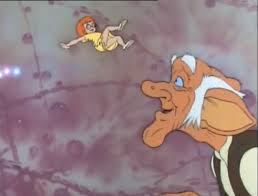
The BFG (Brian Cosgrove 1989)
This animated version of Dahl’s 1982 book first premiered on TV on Christmas Day 1989. David Jason of Only Fools and Horses fame provides the voice of the BFG and Amanda Root plays Sophie. The resulting film was one of the few adaptations to receive praise from the author himself (who would pass away a mere 11 months later). During his lifetime, Dahl was never one to shy away from saying what he thought about interpretations of his work, but director Brian Cosgrove, of Cosgrove Hall Films, said that the author attended a private screening of the 92-minute film with his family and applauded it afterwards. Cosgrove also said that the makers of the film, mindful of the fact that the character of Sophie was based on Dahl’s granddaughter Sophie Dahl, partially modelled their screen vision of the character on her, particularly the John Lennon-type glasses she wears. The animation isn’t of the highest quality, when compared with the standard we take so much for granted today, but that’s forgivable in light of the warm tone struck by the film, and the winning performances of Jason and Root.
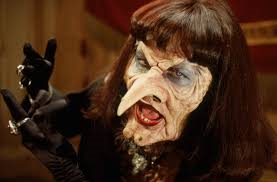
The Witches (Nicolas Roeg 1990)
Now here is a strongly praised adaptation of Dahl’s 1983 book that the author is said to have hated himself largely because of the deviation in its ending. Nicolas Roeg (of Performance, Don’t Look Now and The Man Who Fell to Earth) was a curious choice as director, but the style and tone he employs is entirely fitting with the premise. Following the death of his parents in an automobile accident, Luke Eveshim (Jasen Fisher) spends some of his summer holidays at a hotel in an English seaside resort (Bournemouth presumably as per the novel) with his legal guardian – grandmother Helga (Mai Zetterling). The witches of England arrive en masse at the establishment passing themselves off as members of the Royal Society for the Prevention of Cruelty to Children. Led by the charismatic Miss Ernst or the Grand High Witch (Anjelica Huston in delicious form), they plot to turn all the nation’s children into mice by purchasing sweet shops and candy stores. Luke himself is turned into a four-legged rodent as he overhears the malevolent scheme, along with a corpulent boy by the name of Bruno. Escaping back to his grandmother – who herself has had encounters with witches in the past – Luke concocts a plan to transform the witches into mice as well during a banquet in the hotel. The Witches was not a box office success on its release and this is something of a pity because really it is a wonderfully realised interpretation of Dahl’s work which captures the humour and darkness of the original book. It was the final film to be theatrically released prior to the author’s passing and Dahl apparently described it as ‘utterly appalling.’ He seems to have taken the greatest resentment to the film’s ending which is more upbeat than the novel – the book concludes with Luke still a mouse and facing the prospect of a short life which he seems willing to embrace; the film ends with the Grand High Witch’s assistant – played by Jane Horrocks – turning up at Helga’s house and restoring Luke to his human form. This was also the final film that the great Jim Henson worked on and his puppets are, as always, completely charming. A young Rowan Atkinson also turns up as the hotel’s pernickety manager.
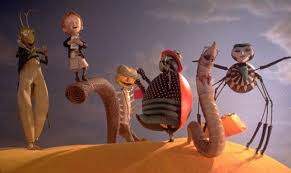
James and the Giant Peach (Henry Selick 1996)
Henry Selick, who’d directed 1993’s stop-motion animated film The Nightmare Before Christmas, was perfectly positioned to helm this one based on Dahl’s third novel, first published in 1961. During the course of his lifetime the author had resisted many offers to have the book adapted for the screen but, subsequent to his death in 1990, his widow Liccy relented and allowed Walt Disney Pictures to secure the film rights from his estate in 1992. The writer would probably have abhorred the mere thought of Walt Disney adapting any of his works, but a key component was the involvement of director Selick, as well as producers Tim Burton and Denise Di Novi who’d performed similar duties on the aforementioned Nightmare Before Christmas. As per its source material, the screen version of James essays the adventures of its titular character as he travels in the giant peach across the Atlantic Ocean to New York City accompanied by an array of bugs. The first 20 minutes of the film occur in live-action and the film also concludes in this format. Otherwise James and the Giant Peach is another triumph in stop-motion technique by a director who would subsequently go on to repeat the process in 2009’s Coraline. A terrific cast includes Miriam Margolyes and Joanna Lumley, as James’s evil aunts, Richard Dreyfuss, Susan Sarandon, Simon Callow, Pete Postlethwaite and Jane Leeves. Veteran composer Randy Newman wrote the distinctively off-beat score which is entirely fitting with the film’s tone and storytelling. Chances are, I think, that Dahl would have appreciated this one.
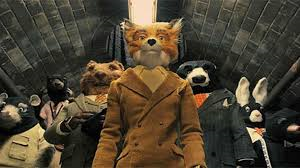
Fantastic Mr. Fox (Wes Anderson 2009)
Another stop-motion adaptation of Dahl’s work, this one comes courtesy of Wes Anderson (The Royal Tenenbaums, Moonrise Kingdom and The Grand Budapest Hotel), and is a truly wonderful imagining of the author’s sixth novel from 1970. An all-star cast features George Clooney as the titular character, Meryl Streep as his wife, and others including Anderson regulars Jason Schwartzman, Bill Murray and Owen Wilson. As well as great direction and an off-beat humorous script (co-written with Noah Baumbach), Anderson displays his uncanny ability to pick an array of songs to appropriately fit the theme and tone of his film – listen out most especially for a few gems from Burl Ives. Composer Alexandre Desplat meantime picked up an Oscar nomination for Best Original Score. For the recording of voice roles Anderson apparently took his actors outside the traditional confines of the studio in order to engender a feeling of spontaneity. This works very well indeed and adds to the beautifully rustic feel of Mr. Fox. The film surprisingly was not a box office hit on its release; it did reasonable business, but did not quite reach the wide audience it deserved. The critics loved it though and Anderson picked up an Oscar nomination for Best Animated Feature. The film, however, lost to Pixar’s truly superb Up at the 82nd Academy Awards. Any other year and it might very well have won.
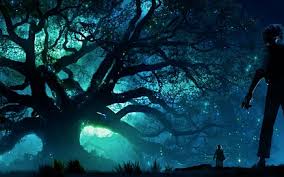
The BFG (Steven Spielberg 2016)
Spielberg’s 2016 version of the tale of a young orphan and her giant friend did not perform up to box office expectations this summer past, but that’s not down to any shortcomings in the film itself. Rather it is a quite beautiful, and suitably funny, re-working of Dahl’s story with winning performances by Mark Rylance and newcomer Ruby Barnhill at its heart. There is a nicely-realised cameo also by the always great Penelope Wilton as Queen Elizabeth II. The visuals and special effects are of the highest order as one would come to expect from a Spielberg flick. Regular scoring collaborator John Williams returns following his notable absence from the director’s previous Bridge of Spies. Unlike the 1989 animated version, Spielberg’s film gives more exposition to the other nastier giants and also to a wonderfully-staged scene in Dream Country itself. The breakfast scene in Buckingham Palace, involving frobscottle and the Queen’s pet dogs, is an absolute hoot as well and notice also how the film’s end differs quite markedly from both the book and the 1989 film. The only problem I would suggest is that the film as a whole may be a little on the slow-paced side and could even be accused of being ponderous in some places; not sure that the kiddies will like this and it might well explain why it did not translate into a summer hit. But, that reservation aside, I think it works very well as a fantasy-fable. And enjoy the whizpopping – that literally is a blast!